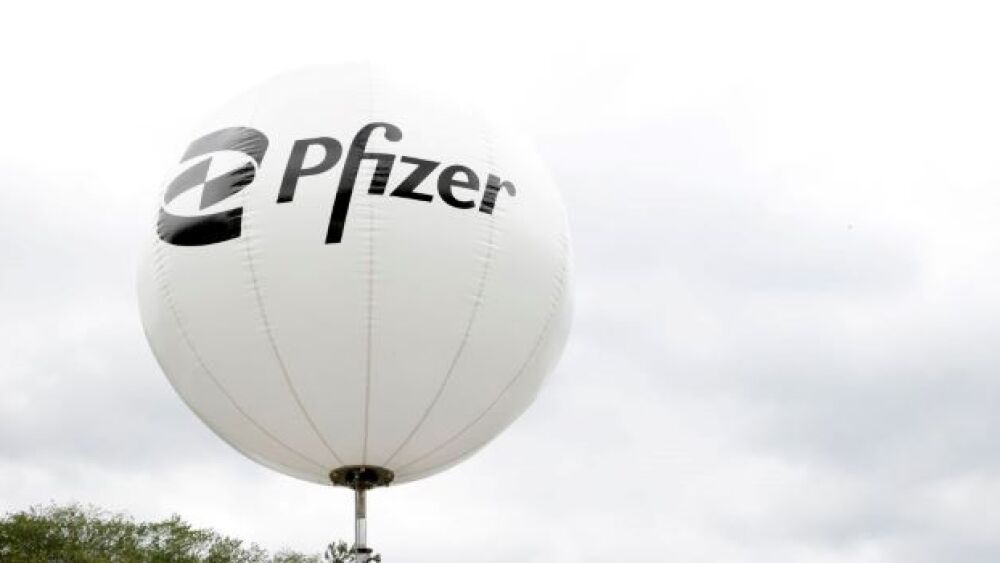Pfizer reported three cases of muscle weakness, two of which involved inflammation of the heart (myocarditis).
Jamie McCarthy/Getty Images for Live Nation
In a letter to Parent Project Muscular Dystrophy (PPMD), Pfizer announced that after three serious adverse events in an ongoing clinical trial of its gene therapy for Duchenne muscular dystrophy (DMD), it was going to narrow the trial protocols.
The company reported three cases of muscle weakness, two of which involved inflammation of the heart (myocarditis). The study is investigating their experimental gene therapy, fordadistrogene movaparvovec. The company’s External Data Monitoring Committee determined that the adverse events were associated with the treatment and that specific mutations in the dystrophin gene are potentially linked to a higher risk for the problems.
DMD is a muscle-wasting condition caused by mutations in the dystrophin gene. This results in a decrease or lack of muscle protein dystrophin. It is a progressive disease that generally causes death in early adulthood, with severe complications that include heart or respiratory-related problems. It primarily affects boys, about 1 in every 3,500 or 5,000 male children.
To improve the safety of the trial, enrollment will exclude DMD patients with any mutation that affects exons 9 through 13, inclusive, or a deletion that affects both exon 29 and exon 30. This represents about 15% of DMD patients. The changes are being reviewed by regulators and ethics committees in the countries where the trial is being conducted.
Pfizer wrote, “We know this change will be very difficult news for the community. However, once the new safety findings and risk information were known, it was necessary to take this step to protect the safety of study participants.”
The clinical trial is not being conducted in the U.S. until the Food and Drug Administration (FDA) approves their study application. It is being conducted in Italy, Spain, Israel, U.K., South Korea, Japan, Russia and Canada.
In a May 2021 letter to Cure Duchenne, Pfizer indicated they had opened 14 trial sites in eight countries. Currently, each country’s regulatory body will have to review and approve the amended protocol before the study continues.
Pfizer noted, “In the U.S., we are actively working with the FDA to address outstanding questions regarding our investigational new drug (IND) FDA application, including technical aspects of our potency assays, so that we can begin enrolling patients in Phase III U.S. study sites. While we have high confidence in our current quality control overall and with our potency assays, which have been accepted in countries outside of the U.S., the FDA has additional technical requests that we are working to address as quickly as possible.”
In May 2021, competitor Sarepta Therapeutics, the first company to receive approval for a DMD therapy, Exondys 51 in 2016, reported promising results from the first 11 participants in its own gene therapy trial. The ENDEAVOR trial is being conducted with Roche. SRP-9001 is a gene transfer therapy designed to deliver the micro-dystrophin-encoding gene to muscle tissue.
One of the challenges of gene therapy for DMD is that the dystrophin gene is the largest in humans, and as such, cannot fit into typical gene therapy vectors, in other words, viruses. In the case of Sarepta, they are transporting a version of the gene that is smaller and codes for a modified version of the protein.
The data demonstrated robust expression of micro-dystrophin and no new safety signals from previous studies. However, in a January 2021 announcement, Sarepta’s product didn’t show significant improvement in motor function.
Another company in the area is Solid Biosciences, which had a string of safety issues with its gene therapy for DMD.
Featured Jobs on BioSpace





